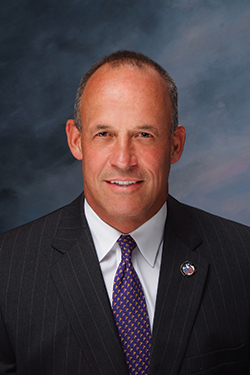
By the time you read this, I will have already delivered my annual State of the City Address. One of the themes had to do with development of the various projects underway or planned in Peoria to strengthen our local economic base. Putting it simply, without continued development, our community will stagnate and fall short of citizen expectations for an enriching and nourishing quality of life.
My intent is not to recount all of these projects, but to reflect on the role of economic development as an important facet of city government. Of course, it wasn’t always the case that cities actually had in-house development expertise. It wasn’t until the mid-1960s that cities like ours recognized that they had a direct stake in the successful retention of existing business and the recruitment of new enterprise.
Peoria’s initial entry fell on the shoulders of one individual, and most of that person’s time was devoted to assembling information on parcels of land available for development. It was a start. Even then, there was debate about the role of city government in this area of municipal service.
Economic development was and is perceived as an important focus, but not a critical service area such as public safety and infrastructure maintenance. As time went on, it increasingly became apparent that economic development was not confined to the city’s borders—or an isolated activity, either. This, in turn, led to the creation of the Economic Development Council (EDC) as a sister organization with the Peoria Area Chamber and the Convention and Visitors Bureau. All three are devoted to one dimension or another of development.
The EDC brought together public and private employers, investors, officials and citizens with the realization that development was, indeed, a shared responsibility. The fact is that development does not occur in a vacuum—there is area-wide interest, impact and responsibility. And to use an old adage, “A rising tide lifts all boats.”
But the other realization was that Peoria had a unique leadership role in economic development—as the governmental, educational, medical, cultural and industrial hub of the region. Like it or not, Peoria is the proverbial “800-pound gorilla” in the room. And it is no small coincidence that the original idea for an EDC came from a prominent businessman who also happened to be mayor. Dick Carver was a visionary, and I often wonder where we would be if it weren’t for his leadership. He clearly recognized that economic development was a shared responsibility.
Today, most of the major municipalities in our multi-county region have economic development personnel. County government is also a critical player, as much of the potential developable land lies beyond municipal boundaries. And our private-sector partners have every reason to support development to ensure that existing businesses aren’t carrying the entire burden of stimulating economic growth.
This is why today’s economic development is a very competitive business. And in this real world of competition for the creation of wealth, which underpins government services at all levels, all participants utilize a vast array of incentives to attract investment or re-investment. If you want to be recognized as a player in the game, you need the proper tools. Many would opine that a city would provide quality basic services and the free market will come on its own without incentives of any kind. That’s a topic for another column. The fact is that those days are long gone.
The City of Peoria continues to place economic development as a priority, but increasingly, we view it as a partnership and shared responsibility with others, like Peoria County and the EDC. As the City makes necessary adjustments to live within its financial means, we’ve had to reduce overall staffing levels (keeping in mind that 80 percent of our operating budget is in personnel and related costs), including those in our Economic Development Department. The City has reduced overall employment by 81 in the last five years, and there is likely more to occur as we adjust to a less-than-robust economic recovery.
Let me make it clear that Peoria will intensify our economic development activities and competitiveness, but likely in a different way going forward. And that will be through more intergovernmental cooperation and partnerships with the private sector and organizations like the EDC and its parent, The Heartland Partnership. It’s very important, especially during tough times as we’re experiencing now, that we stay focused on retention and business development.
And while I most certainly believe that a rising tide lifts all boats, I will do all I can to make sure a goodly share of those boats float in our waters. We’ve come a long way in this business since the early days of the one-person office, and we are not going back to those days. We will work smarter, more efficiently and with a focus on the cost benefits to the taxpayer as we take Peoria’s economic development focus into the next decade. iBi

